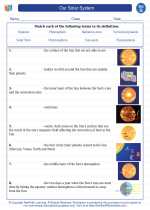Nuclear Reactions
Nuclear reactions involve changes in the nucleus of atoms, resulting in the formation of different elements or isotopes. These reactions are the basis for processes such as nuclear fission, nuclear fusion, and radioactive decay.
Nuclear Fission
Nuclear fission is the process where the nucleus of an atom splits into two smaller nuclei, along with the release of a large amount of energy. This process is the basis for nuclear power plants and nuclear weapons.
Nuclear Fusion
Nuclear fusion involves the combination of two atomic nuclei to form a heavier nucleus. This process powers the sun and other stars, and is being researched as a potential future energy source on Earth.
Radioactive Decay
Radioactive decay is the process by which an unstable atomic nucleus loses energy by emitting radiation, resulting in the transformation of the nucleus into another element or isotope.
Study Guide
- What is a nuclear reaction?
- Explain the process of nuclear fission.
- Describe the concept of nuclear fusion.
- Discuss the phenomenon of radioactive decay.
- What are the practical applications of nuclear reactions?
Understanding nuclear reactions is important in the fields of energy production, nuclear physics, and environmental science. It is also crucial in understanding the behavior of radioactive materials and their impact on human health and the environment.
.◂Science Worksheets and Study Guides Seventh Grade. Our Solar System

 Activity Lesson
Activity Lesson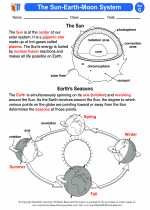
 Activity Lesson
Activity Lesson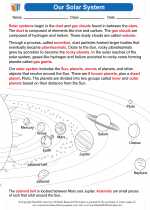
 Worksheet/Answer key
Worksheet/Answer key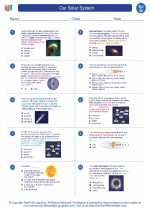
 Worksheet/Answer key
Worksheet/Answer key
 Worksheet/Answer key
Worksheet/Answer key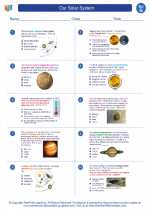
 Worksheet/Answer key
Worksheet/Answer key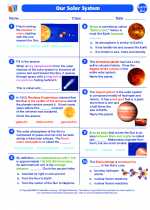
 Vocabulary/Answer key
Vocabulary/Answer key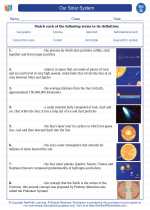
 Vocabulary/Answer key
Vocabulary/Answer key
 Vocabulary/Answer key
Vocabulary/Answer key